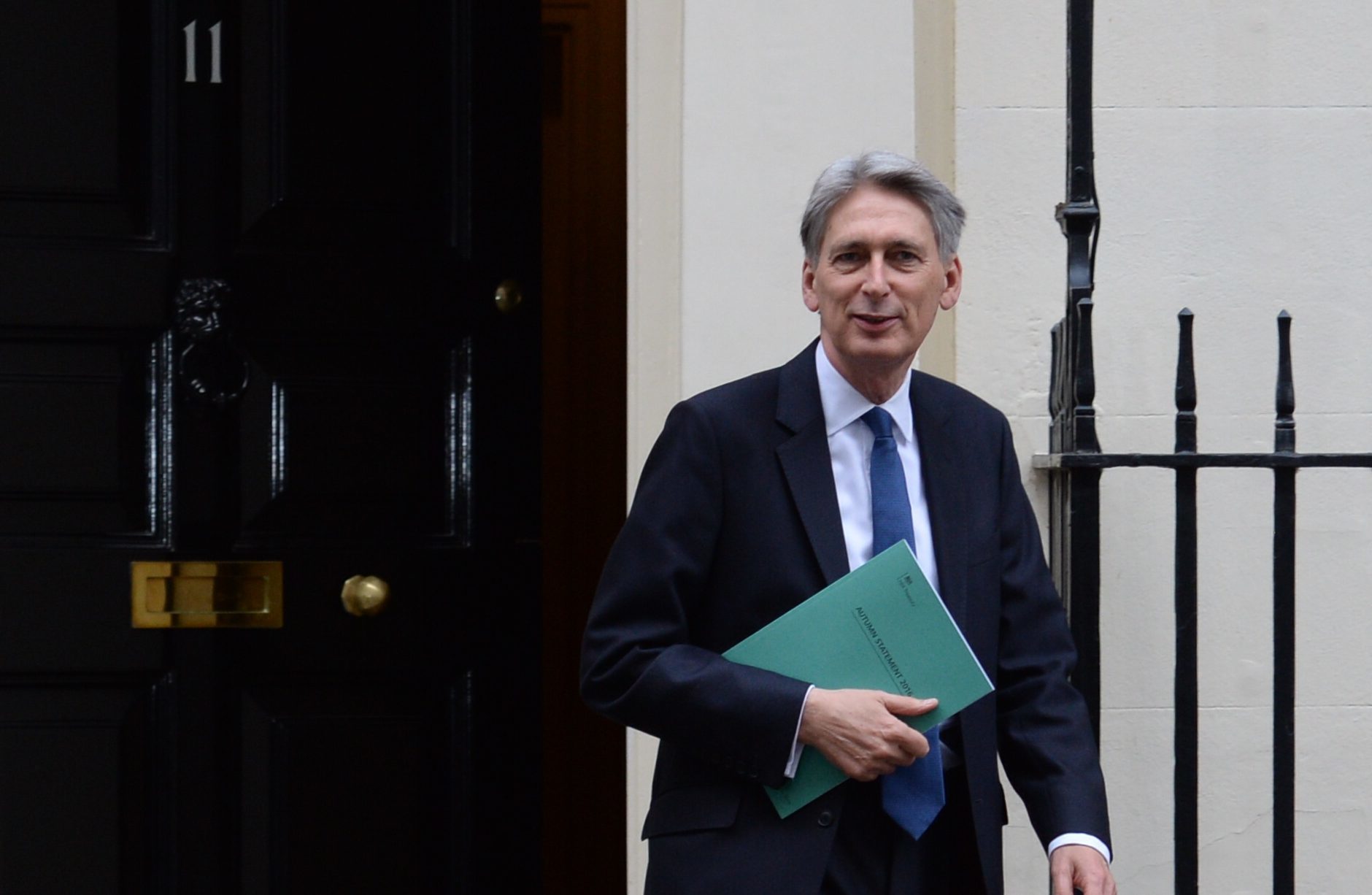Philip Hammond’s Autumn Statement was designed to ensure the UK is prepared for a possible economic slowdown next year, the Chancellor has said.
In a round of broadcast interviews the morning after his first major fiscal statement, Mr Hammond defended forecasts warning that Britain’s public finances are set to take a £60 billion hit as the economy slows due to the effects of Brexit.
Mr Hammond was forced to confirm on Wednesday that he had abandoned plans to wipe out the deficit by 2020 as the Office for Budget Responsibility (OBR) warned the vote to leave the EU would wipe 2.4% off growth over the next five years.
#PhilipHammond on #NigelFarage 'If i ever need any advice from Nigel Farage, I've got his number…but tell tell him not to hold his breath' pic.twitter.com/loczAWMXHY
— Good Morning Britain (@GMB) November 24, 2016
The Chancellor said he would increase borrowing over the period by £122 billion – with the OBR putting almost half the increase down to the costs of Brexit, to the fury of some pro-Leave Conservative MPs.
Speaking during a visit to Gloucestershire on Thursday, Mr Hammond said he had tried to use the Autumn Statement to prepare the economy “for as wide a range of outcomes as I possibly can” after the Brexit vote – including a possible downturn next year.
“To me it makes sense, given the warning signals from the OBR report, to keep a little bit of firepower in the locker, to build a little bit of a reserve so that if there is a slowdown next year, we’ve got enough capacity to support the economy, to protect jobs, to ensure that the economy can get through any headwinds it encounters,” he told Sky News’s Sunrise.
Mr Hammond denied that the Government was keeping the OBR in the dark about its Brexit plans, but said it was impossible to be certain about what the result of negotiations with EU partners would be.
“Until we get to the end of the negotiation we don’t know what the outcome will be, so the OBR itself has said there was an unusually high degree of uncertainty around the forecasts they have made in the Autumn Statement,” he said.
“They know exactly what direction we are going in, but what none of us know is – when we get into the negotiation next March or April – how it is going to proceed, at what pace and what the discussion is going to be like when we start having negotiations.
“By definition, the negotiation isn’t just about what we want, where we want to end up, it is about where we get to in the discussion with the parties on the other side of the table.”
Mr Hammond insisted the OBR had to reflect the changed economic circumstances since June’s referendum.
“These are forecasts of the independent Office for Budget Responsibility. The circumstances have changed,” he told ITV’s Good Morning Britain.
“Our economy faces a period of uncertainty as we negotiate our exit from the European Union.
“We have taken the judgment that, with the economy predicted to slow down next year, it doesn’t make sense to squeeze it harder to try to get to a surplus in the public finances by 2019/20.”




